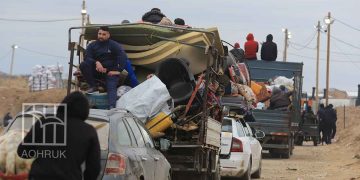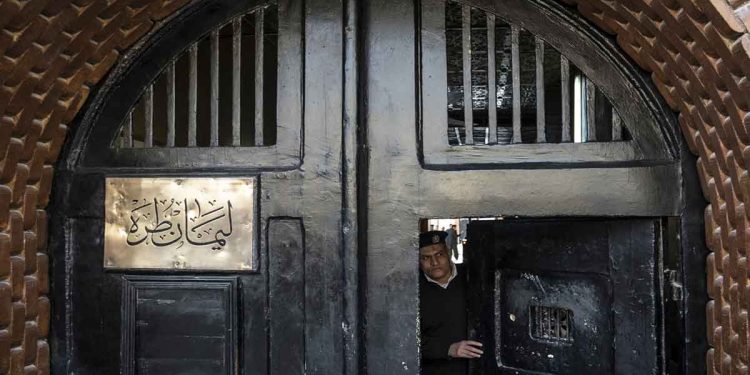The situation inside Egypt’s prisons represents a matter of grave concern, not only as a pressing humanitarian issue, but also because it strikes at the core of the state’s obligations to uphold the fundamental rights enshrined in domestic law, constitutional guarantees, and international conventions.
What is taking place in certain Egyptian prisons reveals a reality that runs counter to the most basic standards of justice and human dignity. Reports of sudden deaths, hunger strikes, and suicide attempts are on the rise, driven by harsh conditions and the absence of adequate medical care.
In this context, Wadi al-Natrun Prison witnessed a tragic incident on Wednesday, 3 September 2025, when detainee Ibrahim Eid Saqr, aged 63, died of a sudden and severe heart attack while performing the noon prayer with fellow prisoners. Despite attempts to resuscitate him, he passed away immediately.
The deceased, a businessman known for his integrity and charitable work, had been arrested in 2017 in connection with a political case and was serving a 10-year prison sentence.
His family affirmed that he had been in good health, raising serious questions about the circumstances of his death in custody.
At the same time, disturbing reports continue to emerge from Badr 3 Prison, where multiple suicide attempts, hunger strikes, and severe health deterioration among political detainees have been documented.
In August alone, at least 16 suicide attempts were reported in Section (2) of the prison, with some prisoners making repeated attempts out of despair at the unrelenting harsh conditions of detention.
Notable cases include an attempt by surgeon Dr. Sayed Heikal, as well as similar attempts by Amin al-Serafi, Khaled Saeed Morsi, and Abdullah Shehata. Meanwhile, Asaad al-Sheikha attempted to swallow a large quantity of medication following a dispute with security officers, while others resorted to slashing their wrists.
Simultaneously, a number of prominent detainees are facing acute health crises, including Mohamed al-Beltagy, who was transferred to hospital after a sudden deterioration, and Amin al-Serafi, whose condition has worsened significantly amid threats directed at his family. Complaints have also surfaced of prisoners being denied treatment and critical cases being sent to disciplinary cells instead of hospitals.
Under international human rights standards, including the International Covenant on Civil and Political Rights and the Convention against Torture, the state bears full responsibility for the lives and safety of those in its custody, regardless of the grounds for their detention. The Egyptian Constitution itself guarantees human dignity and prohibits torture and all forms of physical or psychological harm.
However, documented practices inside certain prisons point to a systematic pattern of violations, including denial of medical care, arbitrary solitary confinement, and mistreatment—amounting to cruel, inhuman, and degrading treatment, unequivocally prohibited under international law.
The death of Ibrahim Saqr while at prayer, coupled with the surge in suicide attempts at Badr 3, highlights a structural crisis within the detention system, where prisons function as tools of collective punishment and humiliation rather than as institutions of justice. Unless urgent and serious measures are taken, the lives of thousands of prisoners will remain at risk, while Egypt’s record on justice and human rights will remain stained with tragedy and violations.
The ongoing situation in Egyptian prisons, particularly in Badr 3, constitutes a direct threat to detainees’ lives and a flagrant breach of the state’s obligations before the international community. The persistence of these abuses makes it imperative to open independent and transparent investigations, to allow human rights organisations and international bodies to visit detention facilities, and to guarantee prisoners their basic rights to medical care, contact with the outside world, and fair trial guarantees.

























